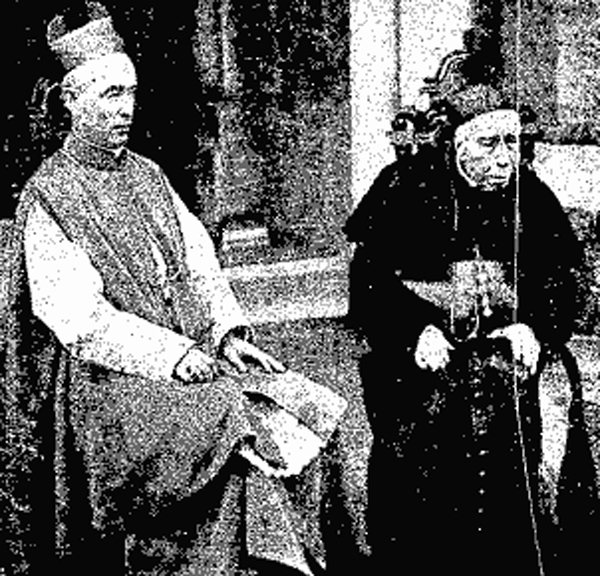Catholic hierarchy condemns Irregular campaign and calls for an end to ‘immoral methods’
Maynooth, 11 October 1922 – Following a meeting in Maynooth yesterday, the Catholic bishops have addressed a pastoral letter to the priests and people of Ireland in which they declare that the Irregular civil war campaign has no moral justification.
Ireland, the bishops allege, has become a byword internationally for a domestic strife that is as ‘disgraceful as it is criminal and suicidal’.
The Irregular campaign, they assert, had wrecked Ireland ‘from end to end’ and they made three appeals: to the leaders to abandon their immoral methods; to the rank and file to return to their homes; and to the country to support the government in every way.
The message from Maynooth is unequivocal and makes clear that the bishops consider the killing of national soldiers to be murder and the seizing of public and private property to be robbery. Similarly, the destruction of roads, bridges and railways is a criminal act and the invasion of homes and the ill-treatment of citizens is a ‘grievious crime’.
People guilty of such crimes cannot be ‘absolved in confession nor admitted to holy communion if they persist in such evil courses.’
The bishops’ letter, to be read out in churches in the coming weeks, carries an equally strong warning to priests approving of this ‘saddest of all revolts’. Priests who support the Irregular campaign are, the bishops have decreed, ‘false to their sacred office, and are guilty of the gravest scandal and will not be allowed to retain faculties held from us. Furthermore, we forbid under pain of suspension... any priest who advocates such a doctrine publicly or privately.’
The bishops’ pastoral is emphatic that it was motivated by neither a political bias nor a desire to help one political party. If it were, they would be ‘unworthy’ of their office and their religion would be a ‘mockery and a sham’.
Rather, the bishops insist, the letter has been issued out of a sense of responsibility to safeguard God’s ‘sacred rule of faith and morals at any cost.’
‘With all earnestness we appeal to the leaders in this saddest revolt to rise above their own feelings, to remember the claim of God and the sufferings of the people in their conscience, and to abandon methods which they now know, beyond the shadow of a doubt, are un-Catholic and immoral, and look to the realisation of their ideas along lines sanctioned by Divine Law and the usages of well-ordered society.’

A motor captured from the irregulars (Image: Irish Life, August 1922)
[Editor's note: This is an article from Century Ireland, a fortnightly online newspaper, written from the perspective of a journalist 100 years ago, based on news reports of the time.]





















